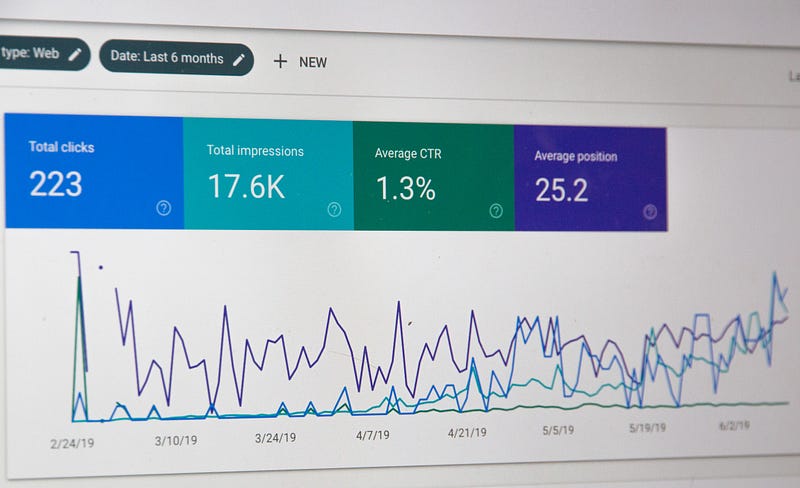Artificial Intelligence (AI) and Machine Learning (ML) have radically transformed the retail industry. These revolutionary technologies have ushered in a new era of retail, one that focuses on enhancing customer experiences and optimizing supply chain operations. In this article, we will delve into the impact of AI and ML in the retail sector, shedding light on how they reshape how consumers shop and retailers operate.

AI and ML aren’t just buzzwords in retail; they have become integral to the industry’s survival and success. The competitive landscape of retail is constantly evolving, with consumers expecting more personalized and convenient shopping experiences. Retailers, in turn, are striving to meet these expectations, and AI and ML provide the tools to do so.
This transformation is evident in various aspects of retail, from brick-and-mortar stores to e-commerce platforms. Whether it’s the personalized product recommendations you receive while shopping online, the seamless interactions with chatbots and virtual assistants, or the optimized supply chain operations that ensure products are available when you need them, AI and ML are driving these changes.
As we explore AI and ML in retail, we will dissect how these technologies enhance customer experiences, streamline supply chain operations, and propel e-commerce stores to new heights. We will also address the challenges and ethical considerations of this technological revolution and look ahead to the future of retail in an AI-driven world.
Join us on this journey to discover how AI and ML are transforming the retail landscape, creating a shopping experience that is smarter, more efficient, and more personalized than ever before.
Enhancing Customer Experiences
In a highly competitive retail landscape, providing exceptional customer experiences is paramount. AI and ML are pivotal in this endeavor by enabling retailers to offer more personalized, efficient, and engaging interactions with their customers.

- Personalized Product Recommendations: One of the most visible ways AI and ML impact customer experiences in retail is through customized product recommendations. Machine learning algorithms analyze a customer’s past purchase history, browsing behavior, and demographic information to suggest products tailored to their preferences. This helps customers discover items they might have missed and increases sales and customer satisfaction.
- Chatbots and Virtual Assistants: AI-powered chatbots and virtual assistants are transforming customer support. They can respond instantly to customer inquiries, guide users through purchasing, and offer information on product availability, returns, and more. This improves customer service and reduces the burden on human customer support agents.
- Visual Search and Image Recognition: Visual search technology allows customers to search for products using images rather than text. AI algorithms analyze images to identify items and find similar products in the inventory. This feature enhances convenience and aids in the discovery of visually appealing items.
- Personalized Pricing: AI can dynamically adjust prices based on various factors, including demand, competitor prices, and customer behavior. Retailers can offer customized discounts or promotions to specific customers, increasing their loyalty and incentivizing repeat purchases.
- Inventory Management: AI and ML optimize inventory management for brick-and-mortar stores. Through real-time data analysis, these technologies help retailers ensure that products are consistently available on the shelves, reducing stockouts and overstock situations that can frustrate customers.
AI and ML enhance the overall customer experience and lead to higher customer retention rates and increased revenue. The ability to offer tailored experiences for product recommendations, pricing, and support helps retailers stay ahead in a competitive market.
Optimizing Supply Chain Operations
Supply chain management is a critical aspect of the retail industry, influencing everything from product availability to cost efficiency. AI and ML are revolutionizing how retailers manage their supply chains, resulting in streamlined operations and improved profitability.
- Demand Forecasting: AI-powered demand forecasting models use historical sales data, market trends, weather patterns, and other factors to predict future product demand. This enables retailers to stock their shelves with the right amount of inventory, reducing overstock or understock situations.
- Inventory Optimization: Machine learning algorithms help retailers optimize inventory levels by considering lead times, seasonality, and demand fluctuations. This leads to cost savings, as excess inventory and carrying costs are minimized.
- Supplier Management: AI can assist in evaluating and managing supplier performance. By monitoring supplier reliability, delivery times, and product quality, retailers can make data-driven decisions about which suppliers to engage with and which to replace.
- Route Optimization: AI algorithms optimize delivery routes for retailers with a distribution network. They factor in variables like traffic, weather conditions, and delivery windows to ensure efficient and timely deliveries, which can reduce transportation costs and enhance customer satisfaction.
- Return Management: AI helps manage returns efficiently by analyzing return patterns, reasons, and product conditions. Retailers can use this data to improve product quality and customer experiences while minimizing losses.
- Quality Control: AI-powered computer vision systems are used in quality control processes. They can identify product defects, discrepancies, or quality issues, ensuring that only high-quality items reach customers. This reduces returns and enhances brand reputation.
- Sustainability: AI and ML are increasingly used to make supply chains more sustainable. These technologies help track and reduce environmental impacts by optimizing transportation routes, reducing waste, and minimizing energy consumption.
Integrating AI and ML into supply chain operations in the retail industry directly impacts costs, customer satisfaction, and sustainability efforts. Retailers can reduce waste, enhance efficiency, and ensure that customers receive the products they want when they want them. In the next section, we will explore the role of AI and ML in marketing and customer insights for retailers.
Enhancing Marketing and Customer Insights
Understanding customer behavior, preferences, and market trends is crucial in the ever-competitive retail landscape. AI and ML technologies are being harnessed to gain valuable insights into customer behavior and preferences, enabling retailers to craft more effective marketing strategies and enhance the overall customer experience.
- Customer Segmentation: AI and ML algorithms analyze large datasets to segment customers based on various criteria, such as demographics, buying patterns, and behavior. This segmentation allows retailers to tailor marketing campaigns to specific customer groups.
- Personalized Recommendations: AI-based recommendation engines examine customers’ past purchases and browsing behavior to suggest products or services they are likely interested in. This personalization enhances the customer experience and often leads to increased sales.
- Pricing Optimization: AI-driven dynamic pricing models adjust prices based on demand, competitor prices, and inventory levels. Retailers can optimize pricing in real time to maximize profits while remaining competitive.
- Sentiment Analysis: Natural Language Processing (NLP) techniques analyze customer reviews, social media comments, and feedback. Retailers can gain insights into customer sentiment, identify pain points, and effectively respond to customer concerns.
- Inventory Demand Forecasting: AI and ML can predict demand for specific products, allowing retailers to manage inventory more efficiently. This, in turn, reduces overstock and out-of-stock situations and optimizes supply chain operations.
- Customer Journey Analysis: AI models track and analyze the customer journey across various touchpoints, from online interactions to in-store visits. Retailers can use this data to improve customer experiences and engagement.
- Market Basket Analysis: AI and ML algorithms uncover relationships between products frequently bought together. This information can help retailers optimize product placement, offer relevant product bundles, and increase cross-selling opportunities.
- Competitive Analysis: AI technologies can monitor and analyze competitors’ pricing, products, and promotions. Retailers can use these insights to fine-tune their strategies and remain competitive.

Using AI and ML in marketing and customer insights gives retailers a competitive edge by enabling them to tailor their strategies, offer personalized experiences, and respond swiftly to market changes. In the next section, we will delve into AI-driven automation in retail operations and its impact on efficiency and cost savings.
Automation in Retail Operations
Automation powered by AI and ML technologies is becoming increasingly prevalent in the retail industry. These innovations are transforming various aspects of retail operations, streamlining processes, and delivering efficiency gains.
- Inventory Management: AI-driven systems monitor inventory levels in real time, automating restocking orders and minimizing overstock and stockouts. This ensures that products are available when customers need them while reducing carrying costs.
- Supply Chain Optimization: Machine learning algorithms analyze supply chain data to optimize routes, schedules, and logistics, leading to more efficient and cost-effective distribution.
- Predictive Maintenance: In the retail sector, predictive maintenance techniques powered by AI predict when equipment like HVAC systems, refrigerators, and lighting will require maintenance. This helps prevent equipment failures, reduces downtime, and saves on maintenance costs.
- Checkout Automation: Automated checkout solutions, including cashier-less stores and self-checkout kiosks, leverage computer vision and machine learning to streamline the payment process, reducing wait times and enhancing the customer experience.
- Chatbots and Virtual Assistants: AI-driven chatbots and virtual assistants provide customer support, answer inquiries, and guide customers through the shopping process, reducing the workload on human customer service representatives.
- Merchandising and Planogram Optimization: AI algorithms help retailers optimize product placements, store layouts, and planograms to enhance product visibility, customer engagement, and sales.
- Loss Prevention: AI-enhanced surveillance systems can detect suspicious behavior or theft incidents in real time, improving security and loss prevention efforts.
- Customer Service Automation: AI-driven chatbots and virtual assistants provide efficient and responsive customer service 24/7, handling inquiries, processing returns, and offering personalized recommendations.
Automation in retail not only reduces operational costs but also enhances the customer experience. As AI and ML evolve, they will likely play an even more prominent role in the retail industry, driving innovation and efficiency. The following section will explore AI’s impact on the healthcare sector, particularly in diagnostics and treatment.
Advancements in Healthcare Diagnostics and Treatment
Artificial Intelligence (AI) and Machine Learning (ML) are transformative forces in the healthcare sector. These technologies are revolutionizing diagnostics and treatment, improving patient outcomes, and enhancing the healthcare experience.
- Medical Imaging: AI-powered image analysis enhances medical imaging techniques, such as MRI, CT scans, and X-rays. AI algorithms can detect anomalies, tumors, fractures, and other medical conditions with high accuracy, aiding radiologists in their diagnoses.
- Drug Discovery and Development: AI accelerates drug discovery by analyzing vast datasets to predict potential drug candidates. ML models can also assist in repurposing existing drugs for new therapeutic applications, significantly reducing research and development timelines.
- Personalized Medicine: AI tailors treatment plans to individual patients by analyzing patient-specific data. This approach ensures that treatments are more effective, reducing adverse effects and improving patient outcomes.
- Clinical Decision Support: AI systems aid healthcare professionals by providing recommendations based on patient data and medical literature. These systems enhance diagnostic accuracy and inform treatment decisions.
- Telemedicine and Remote Monitoring: AI-enabled devices and applications enable remote patient monitoring, expanding access to healthcare services, especially in underserved or remote areas. These tools help monitor chronic conditions and provide timely insights to healthcare providers.
- Operational Efficiency: AI optimizes healthcare operations, reducing inefficiencies in administrative tasks, scheduling, and billing. This lowers healthcare costs and ensures better resource utilization.
- Healthcare Assistants and Chatbots: AI-driven chatbots and virtual healthcare assistants are available 24/7 to answer patient queries, provide medical information, and assist with scheduling appointments.
- Real Time Health Monitoring: Wearable devices equipped with AI can continuously monitor vital signs and detect anomalies, alerting patients and healthcare providers to potential health issues.

Integrating AI and ML in healthcare improves the speed and accuracy of diagnostics, personalizes treatment plans, and enhances operational efficiency. It also offers solutions for remote monitoring and cost savings. These technological advancements are profoundly transforming the healthcare sector. In the next section, we will delve into the use of AI in autonomous vehicles and drones.
AI and Autonomous Systems: Revolutionizing Transportation
Artificial Intelligence (AI) and Machine Learning (ML) are reshaping the landscape of transportation and mobility by enhancing the capabilities of autonomous systems. This section explores the significant impact of AI on autonomous vehicles and drones in the engineering realm.
Autonomous Vehicles:
- Self-Driving Cars: AI is at the heart of self-driving cars, allowing them to perceive their surroundings, make real-time decisions, and navigate complex traffic scenarios. These vehicles can reduce accidents and traffic congestion while improving transportation accessibility.
- Logistics and Delivery: Autonomous vehicles are transforming logistics and delivery services. AI-powered trucks and drones can autonomously transport goods, making delivery more efficient and cost-effective.
- Public Transportation: AI enhances public transportation systems with autonomous buses and trains. These systems can operate with high precision and safety, offering an attractive alternative to private vehicles.
Drones:
- Aerial Surveillance: AI-equipped drones are used for surveillance, border patrolling, and monitoring large areas. They can identify anomalies and provide real-time information to authorities.
- Precision Agriculture: Drones with AI capabilities are employed in agriculture for tasks like crop monitoring, irrigation management, and pest control. They optimize farming practices, leading to increased yields and resource conservation.
- Emergency Response: AI-driven drones assist in disaster management and emergency response. They can provide immediate aerial views, locate survivors, and assess damage in hazardous environments.
- AI in Traffic Management: AI systems can optimize traffic flow by analyzing real-time traffic data, managing traffic signals, and rerouting vehicles to reduce congestion and improve overall traffic efficiency.
- Safety and Accident Prevention: AI can predict potential accidents by analyzing traffic patterns, weather conditions, and vehicle data. It can trigger safety warnings or automatic vehicle interventions to prevent collisions.
- Challenges and Regulations: Integrating AI into autonomous systems raises challenges related to safety, cybersecurity, and regulatory compliance. Ensuring the security and ethical use of AI in transportation is paramount.
Implementing AI in autonomous systems can transform transportation and logistics, making it safer, more efficient, and environmentally friendly. The final section will summarize the key takeaways from this comprehensive exploration of AI and ML in engineering across various domains.
Conclusion
Integrating Artificial Intelligence (AI) and Machine Learning (ML) into engineering represents a transformative wave of technological advancement. This comprehensive exploration has revealed the profound impact of AI and ML across various engineering domains.
Key takeaways from this exploration include enhancing system reliability through predictive maintenance, optimizing industrial processes, improving quality control in manufacturing through computer vision, and the streamlined handling of textual data with Natural Language Processing (NLP). Furthermore, AI is driving innovation in healthcare engineering and autonomous systems in transportation. While AI brings immense potential, it also presents safety, cybersecurity, and regulation challenges that need to be addressed for ethical and secure use.